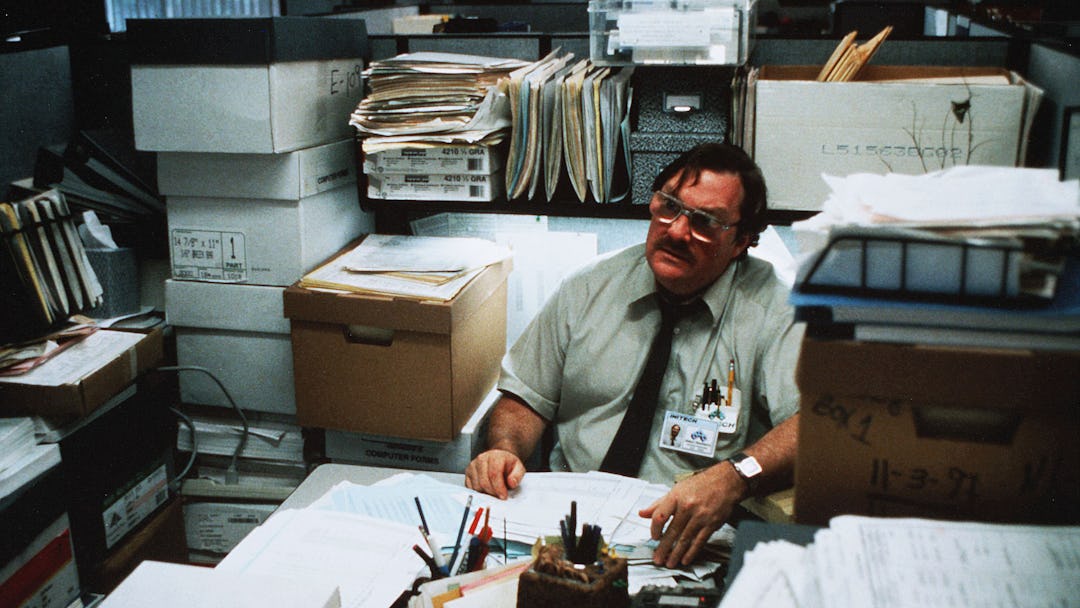Nobody wants to be just another cog in the machine. None of us dream of working a job we hate, for a boss who repulses us, mindlessly tapping buttons day in and day out, just to make a living. Sure, there’s the whole, “It’s just a paycheck” justification, but does that ever succeed in making you feel less miserable?
When Mike Judge’s film Office Space came out in 1999, I was observing that time-honored tradition of American 18-year-olds: trying to understand Marx while also smoking an obscene amount of pot. Which probably explains why, even though it was billed as a comedy, Office Space looked more like a horror film to me, following an unhappy worker stuck in a grayish, Kafkaesque hell of an office where a woman keeps repeating, in a high-pitched voice, “Corporate accounts payable, Nina speaking. Just a moment.” Bill Lumbergh was the vampire-like labor-sucker Marx wrote about, and the mundane life Peter Gibbons went home to after he clocked out seemed like some bit of purgatory as imagined by a modern-day Dante.
Although my mind was saturated with THC and irrational fears of the real world I was soon going to have to walk into, Office Space really did serve as a cautionary tale for me. In fact, I think it educated an entire generation about exactly what we should not want from life, skewering and satirizing all the tiny indignities of office work. Sitting behind a desk pushing paper was revealed to be no different from working at a corporate chain restaurant where your performance is measured by the amount of “flair” you wear. Both types of jobs would eventually, the movie promised, chew you up and spit you out.
I’ve re-watched Office Space plenty of times since its release, and I can say with clear and sober surety — even though jobs are far more scarce on its 15th anniversary — that the film remains just as potent a critique of meaningless white-collar work as it was in the Clinton-era budget-surplus days.
In 2014, it seems clear that this “cult classic” is one of the most sneakily influential films of the last 20 years. I get the sense that almost everyone who watched Office Space around its release decided they wanted something different out of their work experience. For a lot of people in my generation, that’s meant fewer cubicles, more open spaces; less suit-and-tie (unless you’re Justin Timberlake), more jeans-and-collared-shirt; less company-speak, more chilled-out jargon; less gray, more colors. Watching shows like Girls, you get a glimpse of the current generation’s office culture, full of natural light, snack bars, and cool coworkers having a good, company-sanctioned time.
Still, no matter which way you spin it, it’s all business. The ugly face of capitalism rears its ugly head; downsizing happens, employees put in long hours in those beautiful offices, and nobody can find their work truly fulfilling 100 percent of the time. Office Space ends on a happy note, with Peter finding happiness through working outdoors, shoveling the rubble from the office where he once wasted away. Will he remain satisfied with his new occupation? Who knows? The whole point was that he got out of Initech, escaped one vividly rendered workplace nightmare, and got plenty of young people thinking about how to avoid a similar fate.
